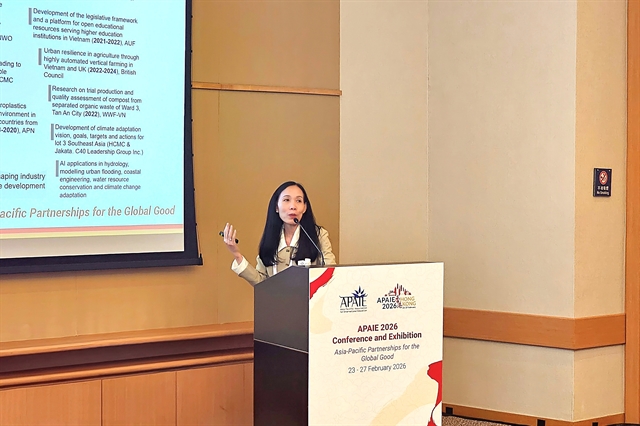 World
World

MIAMI — Millions of Americans troop to polling stations on Tuesday in four states despite the coronavirus pandemic bringing anxiety and uncertainty to the nation's Democratic primaries, with Joe Biden aiming to widen his lead against Bernie Sanders.
Campaigning has shifted from mass rallies to online events, candidate debates are audience-free, and multiple states have postponed their primaries as the coronavirus, which has killed more than 70 people nationwide, prompts unprecedented alterations to the political landscape in an election year.
Democrats are in the midst of choosing a nominee who will challenge Republican President Donald Trump in November's election.
But doubts have undercut the process. As Arizona, Florida, Illinois and Ohio gear up to vote on Tuesday, there is confusion about whether polling stations will be safe.
Voters are also conflicted about venturing out to cast ballots despite Trump urging Americans to restrict gatherings to groups of fewer than 10 people.
Ohio's governor Mike DeWine dramatically complicated the process in his industrial Midwestern state on Monday when he recommended a 10-week postponement of the primary.
But a lawsuit to delay the vote was rejected by an Ohio judge, local media reported.
DeWine's appeared to be a lone official voice calling for delay, and he failed to win support from Trump, who said it was "up to the states" to make the call.
Ultimately, the president said, "I think postponing is unnecessary."
But the vote could be undermined in part by a potential scare factor for the elderly, the constituency at highest risk of contracting coronavirus.
Officials in Florida, with the most delegates in play on Tuesday, said the state is pulling out all the stops to keep the process safe.
"Supervisors of elections are taking precautions at their polling locations to ensure their voters remain safe throughout the day tomorrow," Florida Secretary of State Laurel Lee said on Monday.
Biden, 77, tops polling by significant margins in Arizona, Florida, Illinois and Ohio, where the former vice president could strike a hammer blow against his rival by building an insurmountable lead in the delegate count.
Tuesday may be a last gasp of sorts for the leftist Sanders, who will face mounting pressure to quit if he does not score a major upset.
Meanwhile, Americans are staying home from work or school by the millions as the country implements emergency measures against a swelling crisis.
Kentucky, originally due to vote in May, on Monday announced a delay in its primary until June, while Georgia, which was next in line to vote on March 24, is delaying its primary until May.
Louisiana had earlier postponed its April 4 election to June 20.
Both candidates say they will campaign exclusively online for now, a scenario unheard of at the height of a US presidential primary battle.
"We're not going into crowds," Biden said during a one-on-one debate against Sanders, held on Sunday night in an empty studio with no live audience.
‘Digital’ rallies
Both men said they are taking full precautions during the outbreak: they are washing hands frequently, staff is working from home, and live campaign events have been scrapped.
Sanders hosted a "digital rally" Monday night featuring multiple high-profile supporters including the veteran rocker Neil Young.
"Don't forget to vote!" said Young's wife, actress Daryl Hannah.
The inability to campaign in person imposes a particular handicap on Sanders, who has consistently mobilized large and enthusiastic crowds at his events.
Sanders has acknowledged he is now the underdog in the delegate race but stressed his progressive movement has "transformed" the 2020 campaign.
"We have in many ways won the ideological struggle," he said, by drawing voters and rival Democratic candidates towards his more liberal policies, including tuition-free public college.
He also said the pandemic served as an example of why Americans would be better served by a universal health care system.
But he also struck a note of unity.
"At this unbelievably difficult moment, where so many people are very, very nervous and appropriately so, this is a time when we must come together," Sanders said. — AFP




